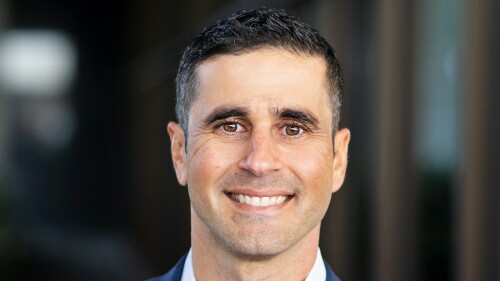An August 17 meeting exploring reform of Fannie Mae and Freddie Mac, sponsored by the U.S. Treasury Department and the U.S. Department of Housing and Urban Development, showed wide disagreement about what to do about the two giant mortgage suppliers and when to do it.
The importance of the issue cannot be overstated: the federal government now supports over 90 percent of all housing finance, more than two-thirds of that through Fannie Mae and Freddie Mac, both of which remain in federal conservancy two years after winding up there. They and the Federal Housing Administration are the sole supporters of the all-too-fragile housing recovery, and every serious suggestion of immediate change sends tremors through the markets. For this reason, the administration has vowed its full support for these government-sponsored entities ( GSEs) and has poured $145 billion into them so far, with some estimating the entities will need another $200 billion before their stay in conservancy is over.
Treasury Secretary Timothy Geithner began the meeting by asserting that there will be fundamental changes to the two GSEs, though he did not say what they would be or when they would be made. The recently enacted Dodd-Frank Wall Street Reform and Consumer Protection Act obligates the Obama administration to make a recommendation on GSE reform early next year, but Geithner did not suggest what was being contemplated at this time. Instead, he listed four key policy challenges:
- What role should the federal government play during good and bad economic times to ensure ongoing liquidity in housing markets; and during times like the present, when capital markets are constrained, how should the government ensure a steady and affordable flow of capital for housing?
- What should the federal government’s role be in providing access to housing for lower-income households?
- What should the federal role be in overseeing and supporting the securitization of mortgages, which also relates to the new regulations of all securitizations required by the Dodd-Frank bill?
- How should the transition from the current system to a balanced public and private market be accomplished?
No one on two panels convened at the meeting argued that the current system—with the federal government carrying virtually the full burden of housing finance—was ideal or that it should be the system of the future. That said, Bill Gross, cofounder and director of the $1 trillion PIMCO, the world’s largest bond fund, stated that the only way for the housing markets to recover will be for the federal government to back mortgages for some years to come. He said private securitizations without federal backing might trade if homeowners made 30 percent downpayments, but investors would require 300 to 400 more basis points, making the mortgages unaffordable to all but a few homebuyers.
Mark Zandi of Moody’s Econometrics, agreed, saying that the federal role is necessary for the foreseeable future. Zandi also pointed out that the federal support for housing is out of balance today because most of the support for housing goes to those with higher incomes and more expensive homes. Several other panelists agreed with him.
Some consensus emerged over the manner in which the federal government might support housing markets in the future, and Geithner did his best to emphasize this area of possible agreement. The idea of the federal government backing a housing intermediary for Fannie Mae and Freddie Mac—as it first did implicitly and now does explicitly—did not seem to have much, if any, support among the panelists. Instead, several panelists supported the federal government backing the securities issued by such an intermediary or by private issuers, or perhaps guaranteeing the underlying mortgages themselves.
Many questions need to be answered in designing such a system of federal guarantees, said Ingrid Gould Ellen of the New York University Furman Center. Among these are:
- What kind of mortgages should be included in the pools to be guaranteed?
- Might they be only “qualified residential mortgages,” a term to be defined by new regulations required by Dodd-Frank, or might other mortgages be included as well?
- Should the mortgages be only those that support the financing of homes for moderate-income households? (A number of panelists emphasized the need for the federal government to support financing for housing for those who otherwise would be left out of the system.)
- Regarding the structure of such a guarantee, should it be first loss, or should the private sector or a fund established by fees take the first loss?
- How might such an entity be set up, and who might own it?
All these and more issues will need to be resolved if this approach is to be considered, and each decision will have many ramifications—both expected and planned for, and unexpected and unintended. If this is the direction the Obama administration is considering, it has a lot of difficult work ahead in the next few months.
Among other ideas suggested and debated by panelists was one offered by Lewis Ranieri, former vice chairman of Salomon Brothers and a widely acclaimed authority on securitization. He suggested that the circumstances in housing markets today present an unprecedented opportunity for the federal government to “enfranchise a whole new generation of homeowners.” Ranieri suggested that an entity supported by the government be established to buy all the vacant and foreclosed properties now being sold to investors and rent them to potential homebuyers under a rent-to-own program. Whether such a program is likely to be considered is uncertain, but Ranieri said that in his view it would offer a far more promising approach to helping the next generation of homebuyers begin their path to homeownership than is otherwise offered them today.
The August meeting, organized to obtain public input, supplemented the 300-plus written comments submitted in response to a broad and very basic series of questions the Treasury Department had already posed to the public. In reality, the discussion was only a small step in what will be a long march to a resolution of Fannie Mae and Freddie Mac, and to creation of the next generation of federal support for housing. While legislation concerning Fannie and Freddie may be considered in the next Congress, it is unlikely that their current role of supporting housing finance will end until the housing markets are strong again, and the timing of that rally will depend on the return of a strong job market. Housing will not be the engine pulling the economy out of the current doldrums, and only when other forces come into play will the housing markets be strong enough to undergo even a gentle, slow transition from their current state.




